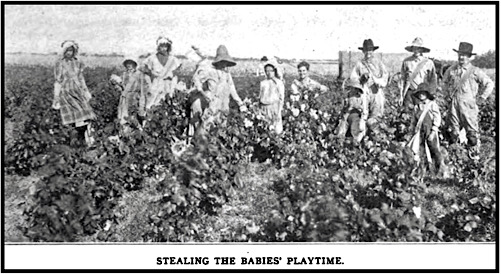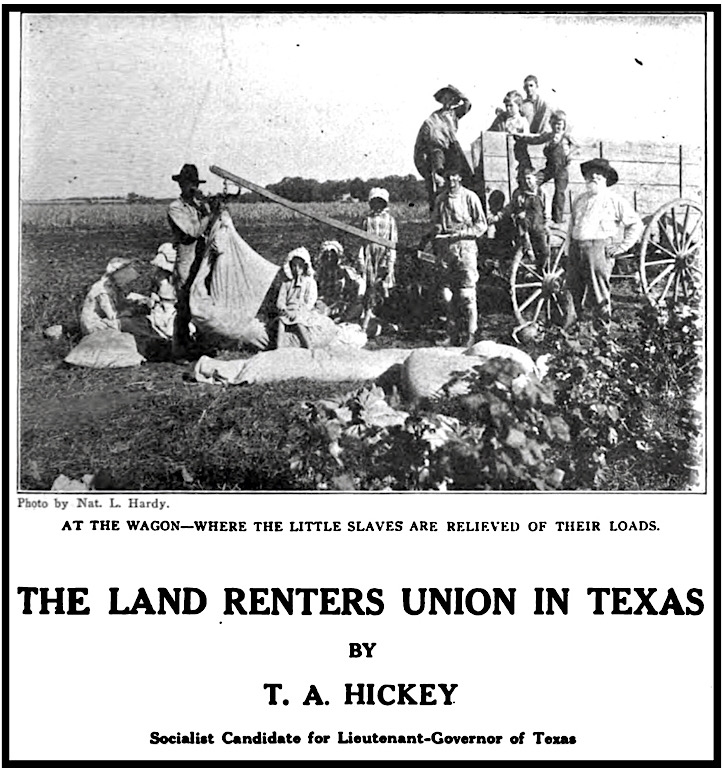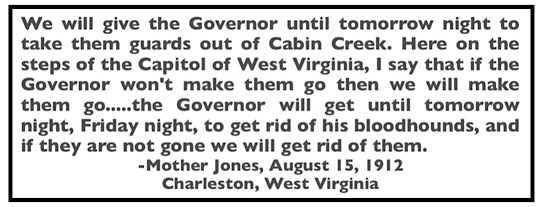 —————
—————
Hellraisers Journal – Tuesday October 15, 1912
“This Is War and War Is Hell” by John W. Brown, Socialist and U. M. W. Organizer
From The Coming Nation of October 12, 1912:
[Part I of III]
—–
“COD walks on sea and land, but the devil reigns in the coal fields of West Virginia.” This was uttered by Gen. C. D. Elliott and the reference was to the civil war now going on in the Kanawha valley where the coal miners and the coal barons have grappled in a life and death struggle which can only end in the surrender of either one of the contending forces. “And the devil is greed,” says General Elliott. Greed personified in a handful of mercenary plutocrats who know no more, care no more for the rights of humanity than do the lean dogs who lick their grimy hands.
The details of this terrible struggle do not differ from that which could be written of all the other coal fields, and forms but another page in the development of American capitalism.
A Long Story of Stealing
First comes the usual questionable and fraudulent land titles, then corrupt legislation, then the usurpation of the courts and finally the general debauchery and degradation of the whole body politic. The Moloch of capitalism is never satisfied. It has no heart, no soul, no conscience. It has but one object, one purpose, and that is to make profit. It stands with open mouth crying, “give, give,” and the people of West Virginia have given, given and given again, first their lands, then their labor, and now the insatiable beast demands the half starved babes. The present strike in the Paint Creek and Cabin Creek districts has a shadowy background reaching back some ten years or more.
In 1902 the coal miners of West Virginia organized under the auspices of the United Mine Workers of America. Immediately following, the coal barons began their present fight against the union and a general strike followed. During this strike of 1902, Judge Jackson and Judge Keller issued their nefarious injunctions which if obeyed by the miners would have been nothing short of wholesale suicide. Naturally, the miners refused to bow to these injunctions and there followed a reign of rapine and legalized murder such as is seldom found in the pages of human history. Among which is recorded what is now known as the Stanford city massacre [Stanaford Massacre.].
An American Pogrom
Dan Cunningham, at that time a United States deputy marshall armed with injunction and eviction papers and preceded by an army of professional murderers went to Stanford city in the night and at daylight made a murderous attack upon the helpless and defenseless miners, murdering them as they slept. Unarmed, old age, fathers and mothers, youths and even suckling babes were shot down like wild beasts and not even the prayers of pregnant mothers could prevail against this thirst for human blood.
There is always a point beyond which lies desperation and revolt. This point was reached during the strike of 1902 and for the time being both the federal authorities and the coal barons were baffled. But not for long. The Baldwin-Felts detective agency, an organization composed of ex-convicts and professional strike-breakers entered the field and agreed by contract to break the strike and from that day until this there has existed in West Virginia, a state of guerrilla warfare that beggars either pen or tongue to portray.


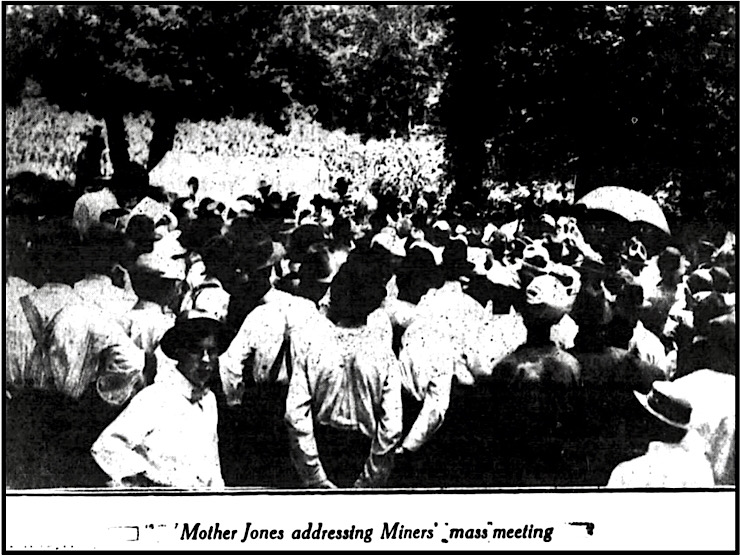
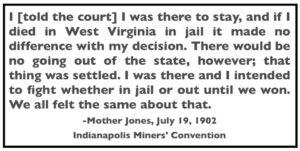 —————
—————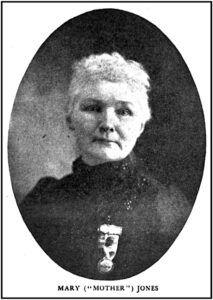
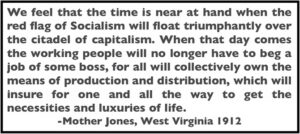 —————
—————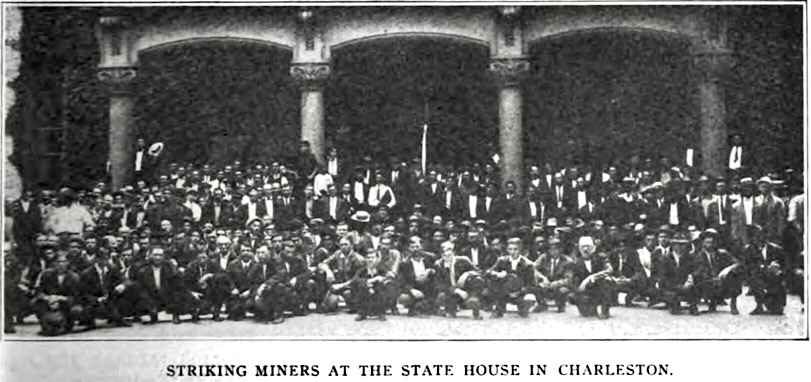
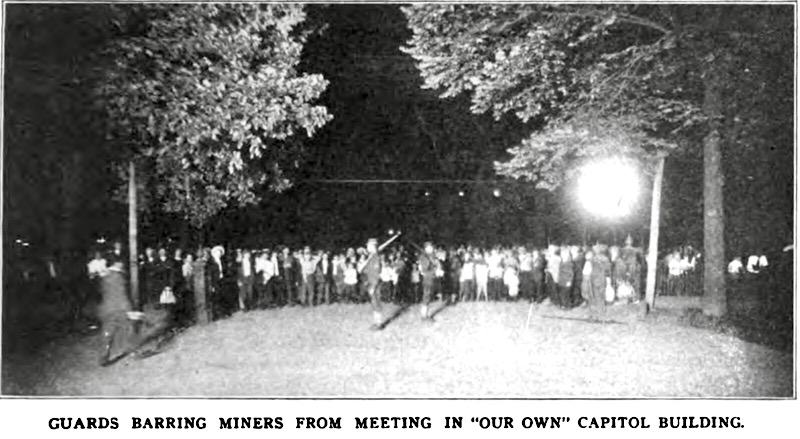
 —————
—————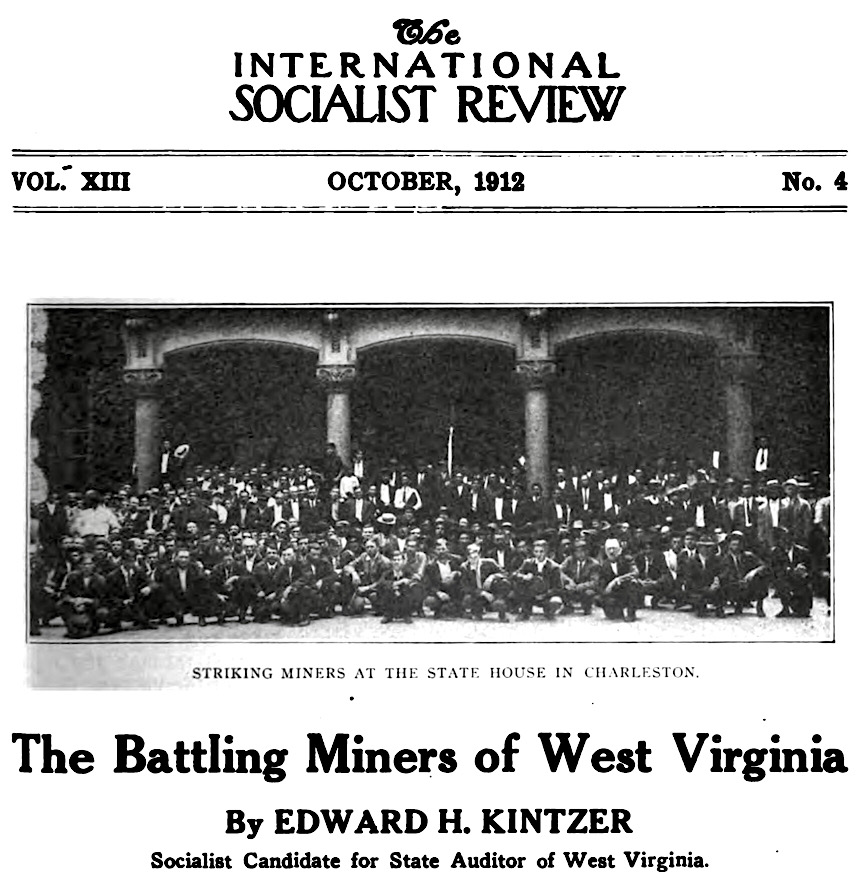 ———-
———-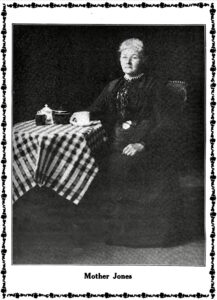
 —————
—————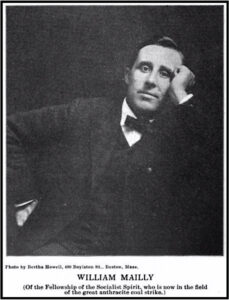
 —————
—————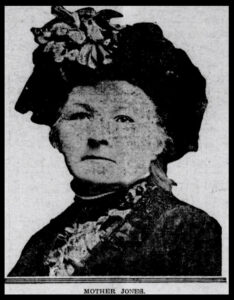 Now, you have gathered here today for a purpose. Every movement made in civilization has had an underlying purpose. You have reached the century in human civilization when the charge of human slavery must forever disappear. (Applause.)
Now, you have gathered here today for a purpose. Every movement made in civilization has had an underlying purpose. You have reached the century in human civilization when the charge of human slavery must forever disappear. (Applause.) —————
—————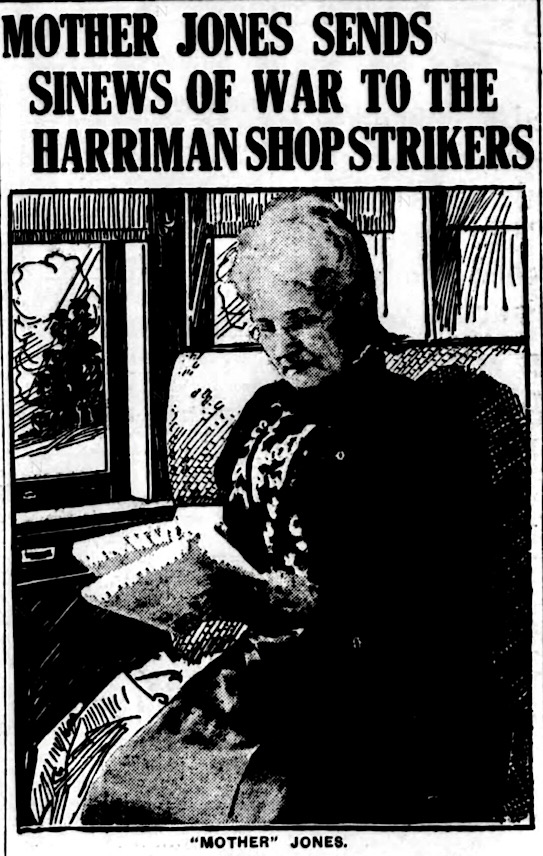
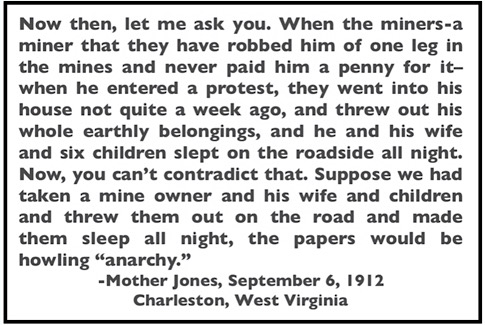 —————
—————
 —————
—————